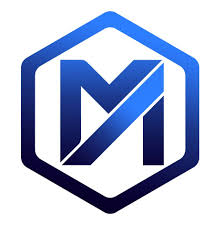
4 minute read
The Value of a Mergers and Acquisitions Certification in Today’s Business World
In today’s competitive business environment, mergers and acquisitions (M&A) are more than just financial transactions they are strategic moves that reshape industries, open new markets, and create long-term value. However, the complexity of these deals requires professionals who possess not only financial acumen but also practical knowledge of the entire transaction lifecycle. This is where a mergers and acquisitions certification becomes an invaluable asset for career growth and professional credibility.
Why M&A Certification Matters
Traditional education in business or finance provides a foundation, but it often leaves gaps when it comes to the intricate processes of M&A. A certification program addresses these gaps by offering targeted learning that combines theory with hands-on application. For professionals working in corporate finance, consulting, private equity, or strategy, certification demonstrates specialized expertise and sets them apart in a highly competitive job market.
Moreover, a certification is not just about career advancement; it is about building confidence in handling multi-million-dollar decisions that shape the future of companies. It signals to employers, clients, and colleagues that the certified professional understands the complexities of M&A and can navigate them effectively.
What You Learn Through Certification
A structured mergers and acquisitions certification typically covers every stage of the deal-making process. Key learning areas include:
Deal Strategy and Transaction Basics – Understanding why companies pursue acquisitions, the types of deals available, and the legal and financial structures that support them.
Due Diligence – Learning how to evaluate financial, legal, operational, and cultural factors to minimize risks and maximize value.
Valuation and Financial Modeling – Building and applying models to assess company value, including discounted cash flow, comparables, and precedent transactions.
Acquisition Finance and LBOs – Exploring financing structures, debt-equity ratios, and leveraged buyout scenarios to understand funding options.
Negotiation and Agreements – Developing the skills to structure agreements, manage negotiations, and align interests between buyers and sellers.
Post-Merger Integration – Gaining strategies to integrate organizations successfully, focusing on culture, systems, and synergy realization.
Practical Application – Applying knowledge through simulations, Excel modeling, case studies, and professional report writing.
These components ensure that learners not only understand the theory but also develop practical, job-ready skills.
Benefits of a Mergers and Acquisitions Certification
Pursuing certification provides a wide range of professional and personal benefits:
Career Advancement – Opens doors to roles in investment banking, corporate strategy, consulting, and private equity.
Professional Credibility – Certification demonstrates expertise, making professionals more attractive to employers and clients.
Hands-On Learning – Programs often include real-world case studies, simulations, and modeling exercises, ensuring knowledge can be applied immediately.
Global Relevance – M&A is a worldwide practice, and certification adds weight to your profile across international markets.
Leadership Development – Beyond technical skills, certification builds strategic thinking and decision-making abilities essential for senior roles.
Who Should Pursue Certification?
The versatility of a mergers and acquisitions certification makes it suitable for a wide audience:
Finance and investment banking professionals looking to specialize in M&A.
Corporate executives and managers involved in strategic growth decisions.
Consultants advising clients on acquisitions and integrations.
Entrepreneurs planning acquisitions, exits, or restructuring.
Legal, HR, and operations professionals who play key roles in due diligence and integration.
Whether you are just beginning your career or already an experienced leader, certification equips you with the knowledge and confidence to excel in complex transactions.
Conclusion
Mergers and acquisitions are among the most powerful tools businesses use to grow and adapt in today’s economy. But success requires more than ambition it requires skill, insight, and the ability to manage risk while creating value. A mergers and acquisitions certification provides professionals with the foundation, practical training, and credibility to thrive in this demanding field.
For anyone aspiring to build a career in finance, strategy, or corporate development, investing in certification is not just about learning it is about shaping the future of business and positioning yourself as a trusted expert in one of the most dynamic areas of the global economy.







